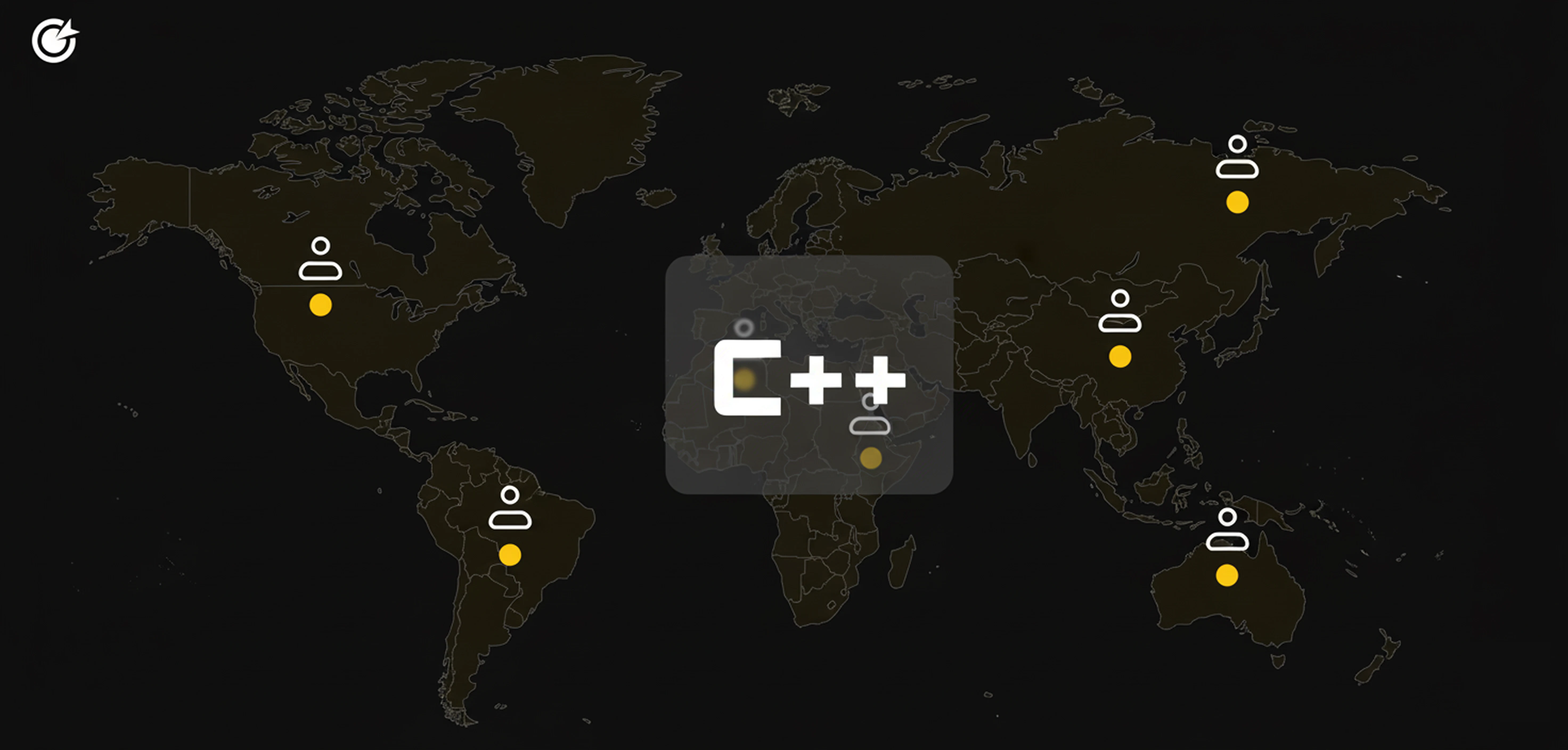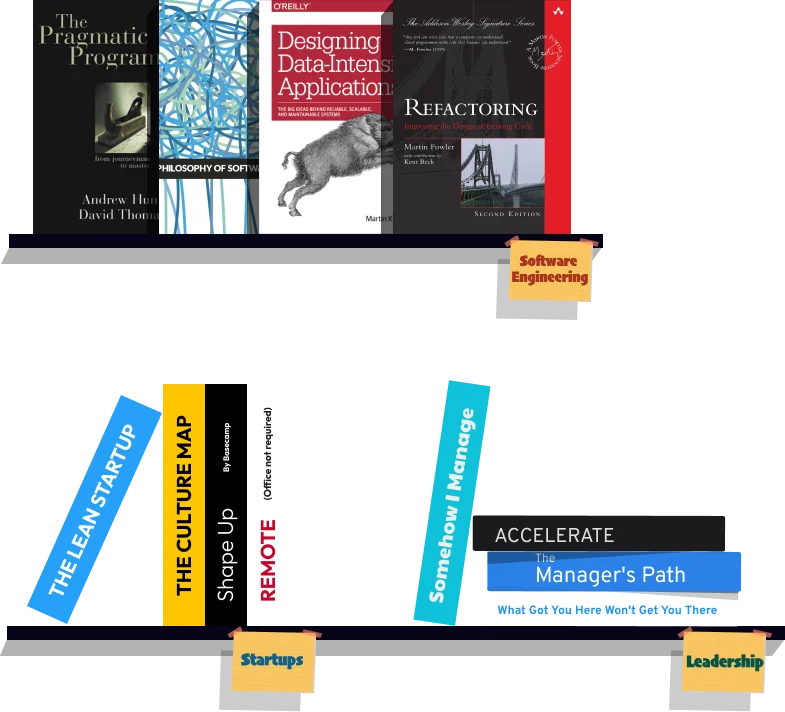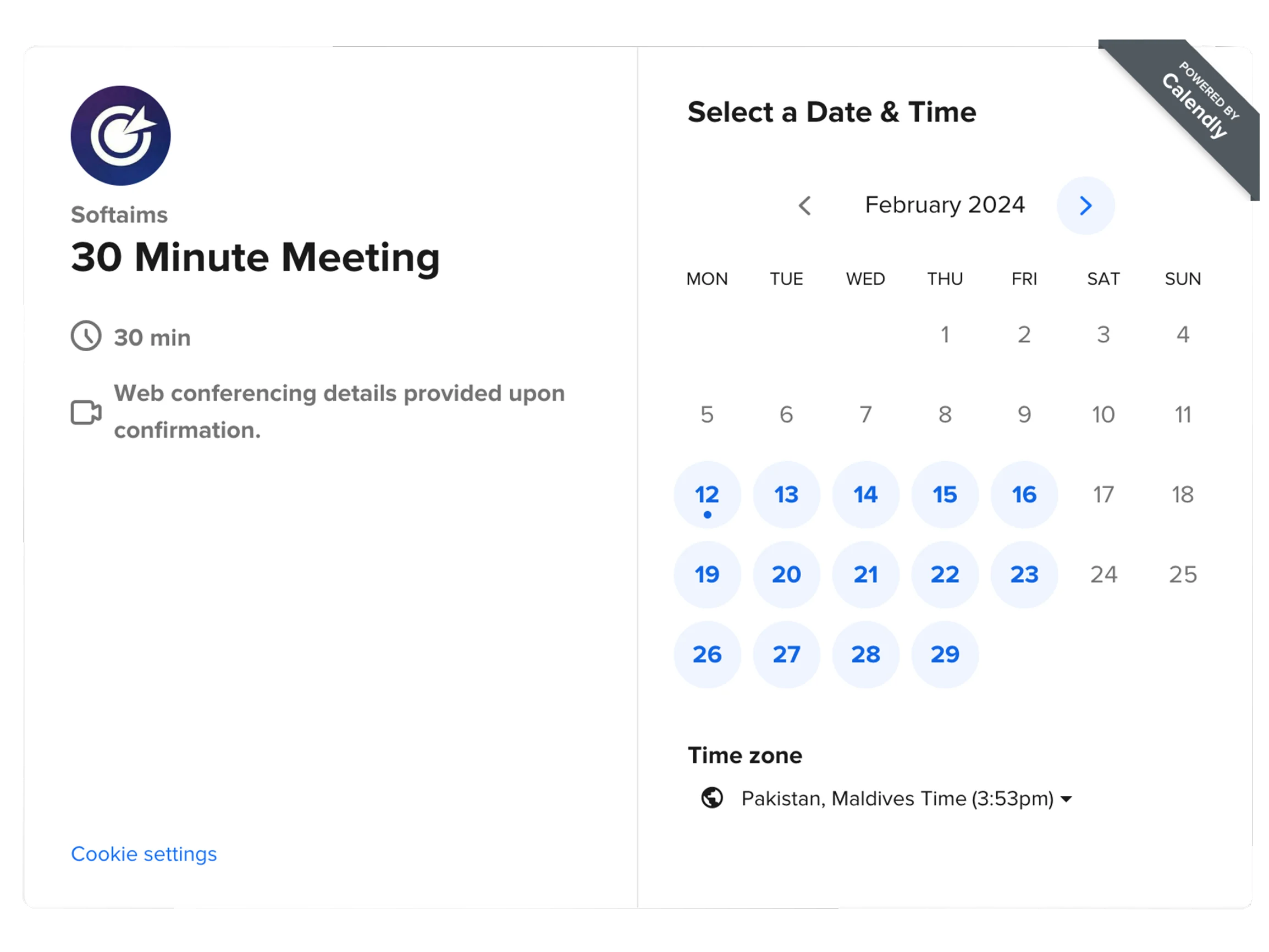The Power and Performance of C++ Developers
A C++ developer is a highly skilled engineer who works with one of the world's most powerful and versatile programming languages. They build high-performance applications where speed, efficiency, and direct hardware control are critical. Their work forms the foundation of video games, high-frequency trading systems, embedded devices, and performance-critical software infrastructure.

Hiring for this role means seeking a developer who is not just a programmer, but a true computer scientist. Their deep understanding of systems architecture, memory management, and complex algorithms is essential for building the fast, reliable, and resource-efficient software that powers demanding industries.
Modern C++ Language Proficiency
A proficient C++ developer must have a deep command of the language's modern features. It is no longer sufficient to just know the basics; expertise in modern C++ standards, such as C++11, C++14, C++17, and even the newer C++20, is crucial. This includes a practical understanding of features like smart pointers, move semantics, lambdas, and type traits.
Candidates should be able to write code that is not only performant but also safe and expressive by leveraging these modern capabilities. For example, using std::unique_ptr and std::shared_ptr for automatic memory management is a non-negotiable skill for any professional C++ developer today.
Object-Oriented Programming and Design Patterns
C++ is a cornerstone of Object-Oriented Programming (OOP). A strong candidate must have a solid grasp of the core OOP principles of encapsulation, inheritance, polymorphism, and abstraction. They should be able to design and implement complex systems using a clean, well-structured class hierarchy.
Beyond the principles, an experienced developer should be well-versed in common software design patterns, such as those documented by the "Gang of Four." Knowledge of patterns like Singleton, Factory, and Observer, and knowing when to apply them, is a key indicator of a developer who can build scalable and maintainable software architecture.
The Standard Template Library
The Standard Template Library (STL) is an essential part of any C++ developer's toolkit. A candidate must demonstrate deep proficiency with the core components of the STL, including its containers, algorithms, and iterators. They should have an intuitive understanding of which container to use for a given task, such as choosing between a std::vector, std::list, and std::map.
Furthermore, they must be skilled at using the rich set of algorithms provided by the STL, like std::sort or std::find_if, to write efficient and readable code. A developer who fully leverages the STL can solve complex problems with surprisingly little code, avoiding the need to reinvent the wheel.
Manual Memory Management
While modern C++ has introduced smart pointers to simplify memory management, a deep understanding of the underlying principles of manual memory management is still essential. A top-tier developer must be an expert in managing memory with new and delete and must understand the concepts of the stack versus the heap.
This knowledge is crucial for debugging memory leaks, preventing dangling pointers, and optimizing performance in resource-constrained environments. A developer who has mastered memory management can write highly efficient and reliable code that avoids the common pitfalls that plague C++ applications.
Concurrency and Multithreading
Modern applications must take advantage of multi-core processors, and C++ provides powerful tools for concurrent programming. A candidate must have a solid understanding of the C++ multithreading library introduced in C++11. This includes experience with creating and managing threads with std::thread and using synchronization primitives like mutexes and condition variables.
They should be aware of the challenges of concurrent programming, such as race conditions and deadlocks, and know how to write thread-safe code. This skill is critical for building the high-performance, scalable systems that C++ is known for.
Build Systems and Tooling
C++ development involves a more complex compilation and linking process than many other languages. A proficient developer must be highly skilled with a modern build system to manage this complexity. Expertise in CMake is the industry standard and a near-universal requirement for any professional C++ role.
They should be able to write clean, cross-platform CMakeLists.txt files to define project targets, manage dependencies, and configure the build process. Familiarity with compilers like GCC and Clang, and build tools like Make or Ninja, is also a fundamental part of a C++ developer's practical skill set.
Performance Optimization and Debugging
One of the main reasons to use C++ is for its performance. An experienced developer must have a strong mindset for performance optimization. They should be able to use profiling tools like gprof or Valgrind to identify performance bottlenecks in their code and know how to resolve them, whether by improving an algorithm or optimizing memory access patterns.
Equally important is the ability to debug complex issues, such as memory corruption or concurrency bugs. Expertise with a powerful debugger like GDB or LLDB is essential. A developer who can methodically track down and solve these difficult problems is an invaluable asset to any team.
Testing Frameworks
A commitment to quality is crucial in C++ development, where bugs can have serious consequences. A professional C++ developer must be experienced in writing unit and integration tests for their code. This requires proficiency in a major C++ testing framework, with Google Test being one of the most popular choices.
They should be able to set up a test suite, write clear and focused test cases using assertions, and integrate the tests into their build system so they can be run automatically. A disciplined approach to testing ensures the delivery of reliable and robust software.
Cross-Platform Development
C++ is a highly portable language, making it an excellent choice for applications that need to run on multiple operating systems. A skilled developer should have experience in writing cross-platform code that can be compiled and run on Windows, macOS, and Linux with minimal changes.
This requires a careful approach to avoiding platform-specific APIs and a deep understanding of how to use their build system (usually CMake) to handle any necessary platform-specific configurations. This ability to create a single, portable codebase is a key strength of the language and a valuable skill for any developer.
How Much Does It Cost to Hire a C++ Developer
The cost of hiring a C++ developer is among the highest in the software industry. This reflects the deep technical expertise required for the role, the relatively smaller talent pool compared to web technologies, and the high-stakes industries (like finance, gaming, and embedded systems) where C++ is prevalent.
Salaries are heavily influenced by geographic location, years of experience, and domain-specific knowledge. Tech hubs in North America and Western Europe command the highest salaries. The following table provides estimated average annual salaries for a mid-level C++ developer.
| Country |
Average Annual Salary (USD) |
| United States |
$140,000 |
| Switzerland |
$130,000 |
| United Kingdom |
$90,000 |
| Germany |
$95,000 |
| Canada |
$110,000 |
| Poland |
$65,000 |
| Ukraine |
$60,000 |
| India |
$45,000 |
| Japan |
$85,000 |
| Brazil |
$55,000 |
When to Hire Dedicated C++ Developers Versus Freelance C++ Developers
Hiring a dedicated, full-time C++ developer is the standard choice for building core, long-term, and performance-critical systems. This model is essential for developing a proprietary game engine, a high-frequency trading platform, or the firmware for an embedded device. A dedicated engineer will provide the deep, ongoing ownership required for these complex and foundational projects.
Hiring a freelance C++ developer is a more tactical option, ideal for specific, well-defined tasks or for augmenting your team's expertise. This is a great model for optimizing a specific performance bottleneck in an existing application, developing a particular module or library, or getting expert help to port code to a new platform. Freelancers can provide highly specialized skills on-demand without a long-term commitment.
Why Do Companies Hire C++ Developers
Companies hire C++ developers for one primary reason: performance. When an application needs to run as fast as possible and have direct, low-level control over system resources like memory and CPU, C++ is the undisputed choice. This makes it indispensable for industries like video game development, quantitative finance, scientific computing, and operating system development.
Beyond raw speed, C++ is hired for its maturity, stability, and massive ecosystem of existing libraries. It allows companies to build extremely reliable and resource-efficient applications that can run on a wide variety of hardware, from powerful servers to tiny embedded devices. This versatility and control make C++ a critical tool for solving some of the most challenging problems in software engineering.
In conclusion, hiring a top-tier C++ developer requires a search for a deeply technical and disciplined engineer who has mastered the complexities of a powerful systems language. The ideal candidate will combine a strong command of modern C++ features and the STL with a rigorous approach to memory management, performance optimization, and testing. By prioritizing these skills, organizations can build teams capable of tackling the most demanding computational challenges and creating the high-performance, rock-solid software that modern technology relies on.



































